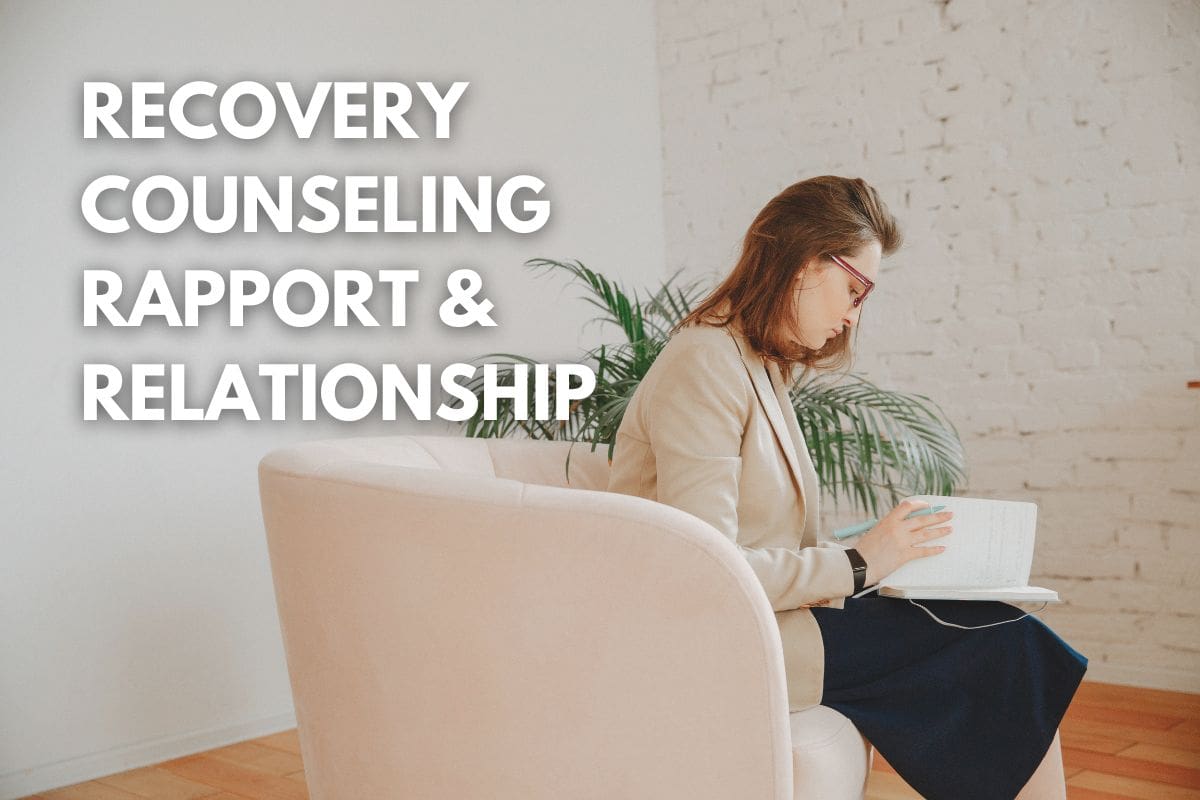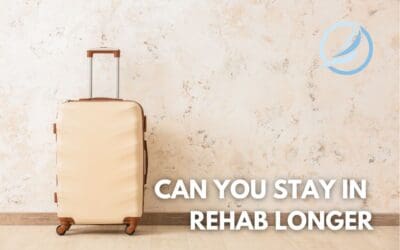Mental health support is one of the essential parts of any substance abuse recovery program. While physical symptoms of addiction and withdrawal tend to garner most of the attention, the psychological effects can be just as hard to overcome and tend to last for longer.
Working with addiction counselors provides the support people need to learn to manage the mental health aspects of addiction recovery, and one of the most important elements of effective counseling is the ability to build rapport.
“Rapport” is a harmonious relationship in which people can understand each other’s feelings and thoughts, leading to good communication.
How important is rapport during recovery counseling?
In practical terms, rapport is the ability to meet patients where they are, profoundly affecting the counselor-patient relationship.
Sharing a harmonious relationship helps counselors meet patients with understanding and compassion during times of struggle. Rapport helps them find the balance between providing advice, letting patients set the pace for their recovery, listening, and offering behavioral alternatives.
Some benefits of good rapport include:
- Patients feel more comfortable sharing painful experiences and memories
- Builds comfort when discussing feelings
- Allows both to work through issues, coming closer to insights and solutions
- Develops a sense of safety around the counselor
Rapport also helps build two critical elements of the patient-counselor relationship:
Mutuality: the sense that counseling is a two-way relationship and not just someone telling you how to behave.
Collaboration: the sense that the relationship is collaborative. Two people agree to help each other reach a goal.
Patients undergoing addiction recovery are vulnerable and need someone to make them feel heard, valued, and respected. Building rapport achieves precisely that.
The role of empathy in rapport
“Empathy” is another term commonly used in counseling circles, and it’s one of the motors that make rapport possible.
Empathy is the ability to “put yourself in someone else’s shoes” to deeply understand their circumstances, feelings, and behaviors.
Without the ability to understand someone else’s feelings and motivations, it would be tough to build a harmonious relationship where both parties feel heard and valued.
It is only from a deep empathy that a patient and counselor can connect and gain insights towards recovery.
How do you build rapport during counseling?
There are many ways to build rapport during counseling. It starts in the first session, when both parties become acquainted, discuss the patient’s issues, and start working on a treatment plan.
As the sessions evolve, counselors use the following techniques to build rapport:
- Body language: providing supportive nonverbal cues like eye contact and nodding in agreement when the patient expresses feelings and thoughts.
- Feedback: simultaneously listen intentionally and provide feedback when necessary, especially within the same session.
- Collaboration: building the sense that the patient and counselor are a team rather than superior and subordinate. It makes patients feel empowered to be active in their recovery.
- Flexibility and responsiveness: while counselors are knowledgeable about their field, they are still open to being flexible to the patient’s needs. Being responsive to the unique case of every patient helps counselors create customized treatments informed by the patient’s cultural background, gender identity, therapy preferences, and attachment style.
- Genuineness: the feeling that counselors act honestly with the patient’s best interests in mind. It deepens the sense of collaboration by seeing each other as having a human relationship, not just a professional one.
What to do if rapport is missing with your counselor?
Sometimes, patients don’t feel the connection necessary to let themselves be vulnerable and can end up feeling stuck in treatment.
There are many reasons why rapport can be missing. The most apparent one would be a lack of experience on the counselor’s side, which could, in theory, prevent them from applying all techniques in the ways that work best for the patient.
Another possibility is that personalities are too different. Even if both participants are giving their best, the ways each uses to relate to others may be clashing and not fitting together like puzzle pieces that don’t match.
Whatever the case, if rapport is not built, the treatment will not be as effective as it could be.
When that happens, communicate with your counselors and let them know your feelings. They may be able to adjust their approach or direct you to a counselor who might fit better with you.
Ultimately, there are many good counselors out there, and you may need to talk to a few before finding the one who works better for you.
Now that you know the importance of building rapport in recovery counseling, you can use these resources to find the right counselor for your needs. The Freedom Center will help you find the right counselor to assist with your recovery journey.


































